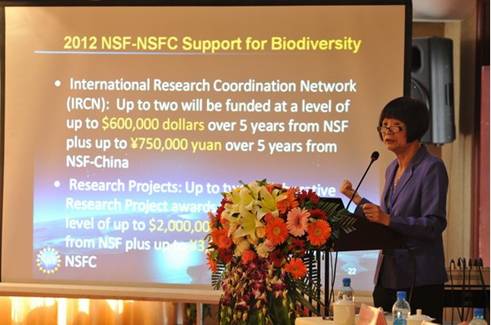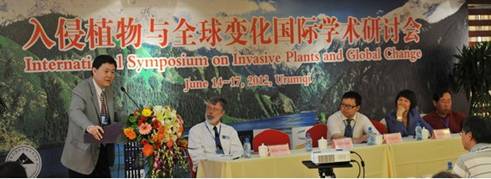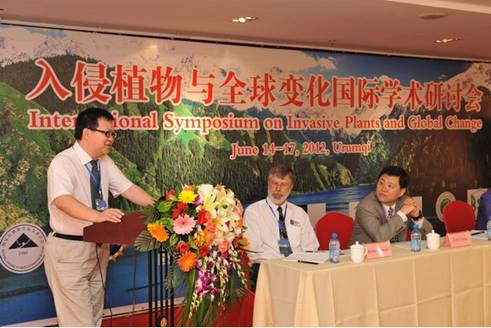International Symposium on Invasive Plants and Global Change Held in Urumqi
2012-07-03
During the period of June 13-17, 2012, the International Symposium on Invasive Plants and Global Change, organized by Xinjiang Institute of Ecology and Geography, Chinese Academy of Sciences (XIEG, CAS), University of Nevada, Reno (UNR), CAS Key Lab of Biogeography and Bioresource in Arid Land, Xinjiang Agricultural University (XAU) and Xinjiang Society of Botany (XSB), was held in Urumqi.
With the global change research in depth, the biology and synthetical management of invasive plants have attracted widespread attentions. Large numbers of studies focus on the effects of biological and non-biological factors on promoting the migration and invasion of exotic plants, such as weather and climate change and land use patterns. This international symposium aims to evaluate the influences of global climate change on the mechanisms of plant invasions, and provide effective measures to manage the invasive plants under the context of global climate change. The symposium especially focused on the fragile and sensitive arid ecosystems.
This symposium has attracted nearly 100 delegates from 6 countries, including United States, Australia, Russia, Kazakhstan, Tajikistan, Turkmenistan, Uzbekistan and China. Based on the topics of mechanisms for plant invasions in arid land, effects of global climate change on plant invasions and managements of plant invasions, researches conducted discussions on the mechanisms and processes of plant invasions and its relationship with the global climate change by the forms of oral session, keynote address and poster session. The symposium established solid foundation for the implementation of international cooperation research project of invasive plants.
After the symposium, the delegates conducted field investigation in the Kalamaili Mountains Ungulate Natural Reserve and Nanshan Xiejiagou, and understood the vegetation distribution and habitat characteristics of deserts and mountains in Xinjiang.
This symposium was funded by the National Natural Science Foundation of China (NSFC), United States National Science Foundation (NSF), and United Nations Development Programme (UNDP). Mr. ZOU Liyao, deputy director general of NSFC Bureau of International Cooperation, Ms. EMILY Y. Ashworth, director of China Office, NSF, professor CHEN Xi, director of XIEG, ROBERT Nowak, professor of UNR and professor MA Keping, deputy director of XSB, attended the symposium and presented welcome address during the ceremony.

The symposium site

Ms. EMILY Y. Ashworth presented welcome address

Mr. ZOU Liyao presented welcome address

Prof. CHEN Xi presented welcome address



